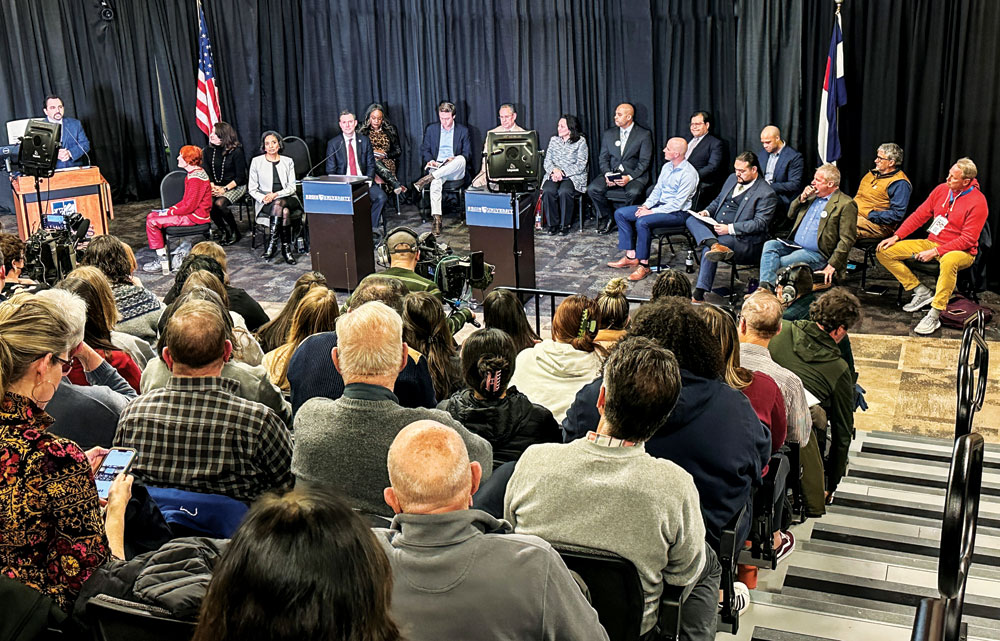
On Feb. 9, Regis University hosted a Denver mayoral debate that was sponsored by CBS and included all 17 candidates. This is the largest field of mayoral candidates in over 40 years, and on April 4 Denver voters will decide which candidate can best lead the city and address our issues. Front Porch photo by Christie Gosch
By April 4, Denver voters will make their decisions to determine the mayor of the city, the councilmembers of their districts, and the fate of the Park Hill Golf Course. The scope of the mayor’s race in this election cycle is especially rare for the city. With Mayor Michael Hancock being term-limited, this is the first election cycle in over 12 years in which this position is entirely vacant. And with 17 candidates vying for that open seat, this is the largest field of mayoral candidates that Denver has experienced in more than 40 years. Most candidates agree that the three most prevalent issues in the city relate to affordable housing, the homeless population, and crime rates. However, since the candidates often differ regarding their perspectives on the topics and solutions to the problems, the choice Denver voters make could have a substantial impact on the issues that get prioritized and the policies that get implemented.
Redistricting Changes
This will also be the first City Council election cycle after the redistricting process. Every ten years, the City redraws the boundaries of the council districts according to the new data from the U.S. Census. Population rates or density changes can modify the placement of the lines and the neighborhoods in the districts.
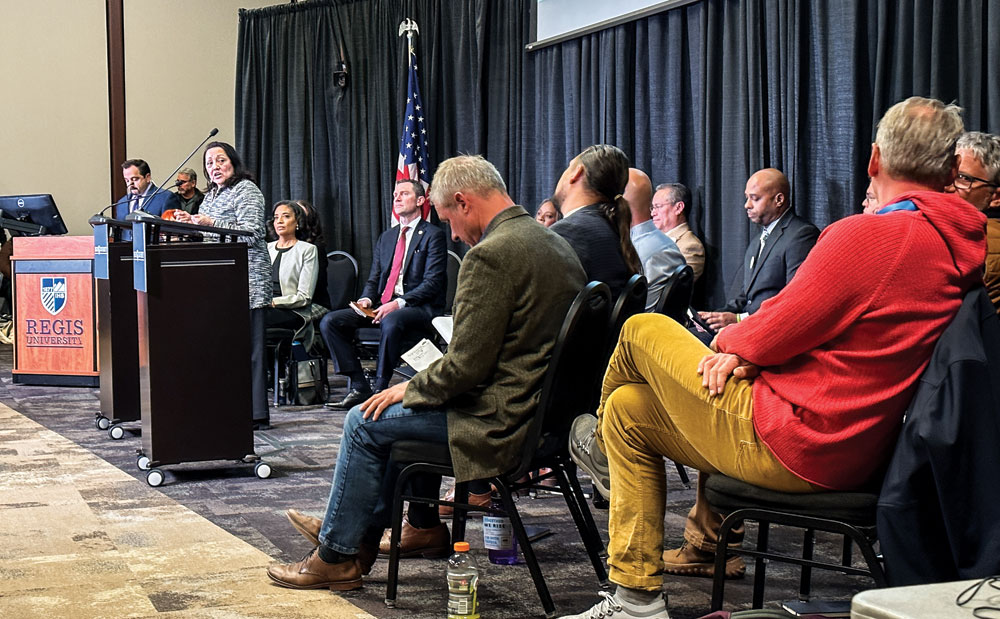
City council member Debbie Ortega, who is running for Mayor of Denver, offers a rebuttal to one of her running mates at the Mayoral debate on February 9 hosted by Regis University. Front Porch photo by Christie Gosch
Certain boundary changes occurred in Northeast Denver neighborhoods. District 5 encompasses the communities south of Colfax, including Montclair, Mayfair, and Lowry. But a shift occurred with East Colfax, which previously was a part of this district but has now entirely joined the District 8 neighborhoods. District 8 envelops the majority of the territory covering Central Park, Park Hill, Montbello, and now all of East Colfax.
Another change facilitated by redistricting involves the placement of Park Hill. Northeast Park Hill is remaining in District 8 alongside Central Park. But South and North Park Hill have moved into District 9, which stretches through North Denver and Five Points. Additionally, Denver has two at-large council seats that cover the entire city, and the top-two candidates who get the most votes will be awarded those at-large positions.
Ballots Are Sent March 13 — Election Day Is April 4
The ballots will be sent out to all households on March 13, but many races might not be decided on the April 4 Election Day. With the exception of the at-large seats, Denver requires all city council and mayoral candidates to get over 50 percent of the votes to be declared the winners of their races. If no one in a given race achieves a majority in the general election, the top-two candidates will face each other in a June 6 runoff election.
Front Porch Guide to the Ballot
The following guide provides the complete list of candidates for the mayoral, Northeast city council, and at-large city council races. A random raffle conducted by the City determined the order of the candidates on the election ballot, and this guide presents the list of candidates according to the order in which they will appear on the ballot. Front Porch contacted every candidate and obtained written responses to provide information about their backgrounds and to express their statements for the readers. The bios have been written by Front Porch, the statements were issued by the candidates, and equal word counts have been granted to each participant.
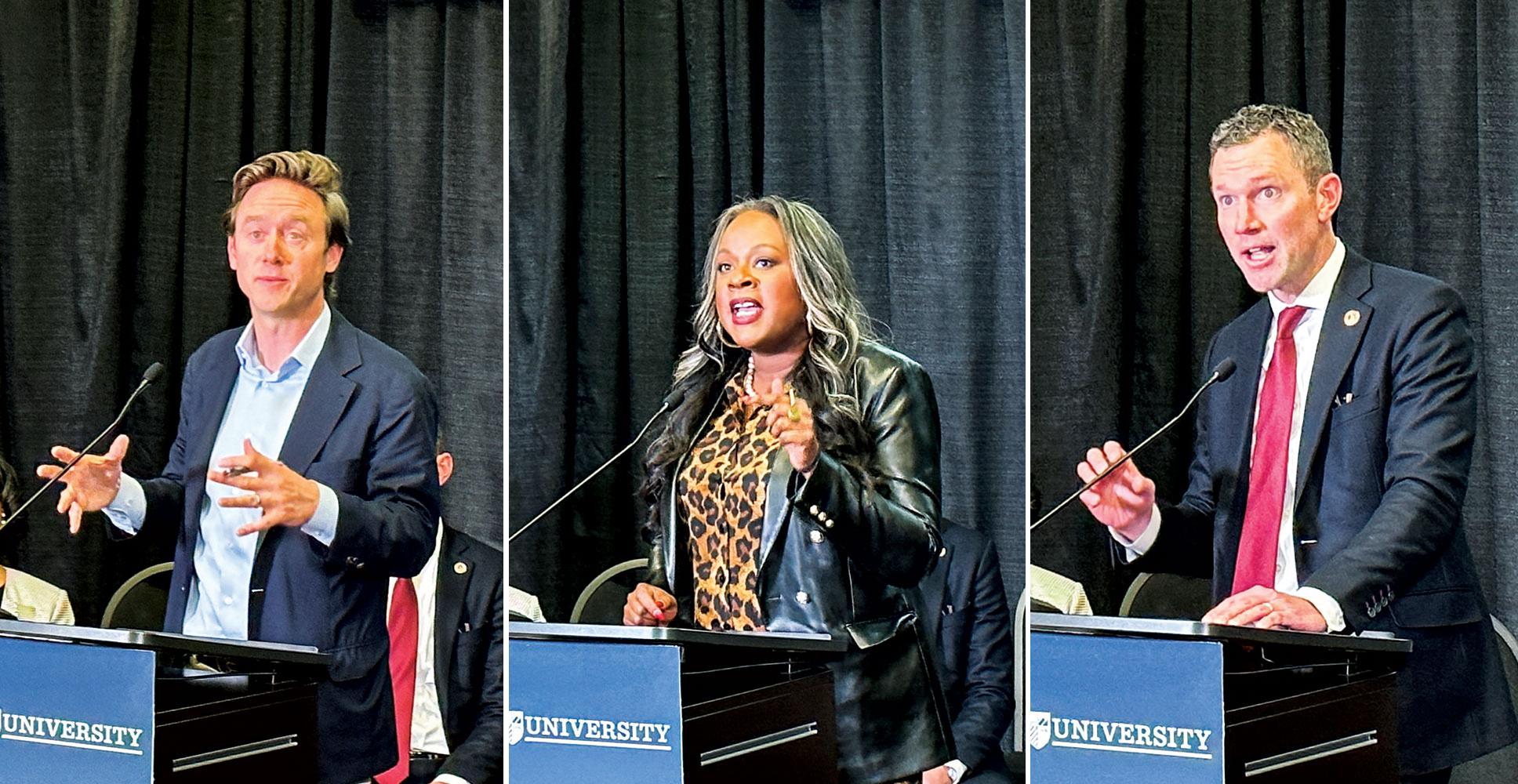
Three Northeast Denver politicians are vying for job of Mayor. From left to right, Mike Johnston, Leslie Herod and Chris Hansen all debated and talked about what they would do as mayor of Denver at the Mayoral debate on February 9 hosted by Regis University. Front Porch photo by Christie Gosch
The statements provided by the mayoral candidates are in response to the question: “What would be your goals for the city or your priorities as mayor?” Similarly, the statements issued by the city council candidates reflect answers to the question: “What would be your goals for our communities or your priorities as councilmember?
Mayoral Candidate Statements
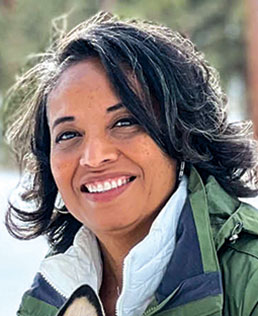 Lisa Calderon—Calderon is the Executive Director of Emerge Colorado, which helps Democratic women train to run for political office. She advocates to reform the justice system, protect abuse victims, reduce mass incarceration, and train police in best practices.
Lisa Calderon—Calderon is the Executive Director of Emerge Colorado, which helps Democratic women train to run for political office. She advocates to reform the justice system, protect abuse victims, reduce mass incarceration, and train police in best practices.
I’m running to decentralize city government, put services into our neighborhoods, and co-govern with community stakeholders. As mayor, I will create publicly-funded affordable housing, serve our unhoused neighbors with real solutions, reject the false binary between over-policing and community safety, and build a Denver in which everyone can afford to live, work, and enjoy.
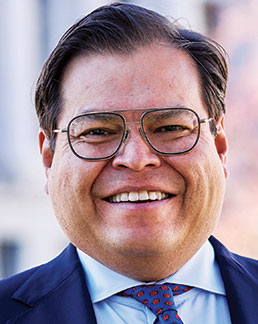 Trinidad Rodriguez—Rodriguez implemented affordable housing projects while working as a public banker for the city. He served on boards for Blueprint Denver, the Denver Housing Authority, and the Downtown Denver Partnership.
Trinidad Rodriguez—Rodriguez implemented affordable housing projects while working as a public banker for the city. He served on boards for Blueprint Denver, the Denver Housing Authority, and the Downtown Denver Partnership.
On homelessness, we must commit to voluntary and involuntary treatment for unhoused folks who pose a threat to themselves or others. On safety, we must grow our police ranks to be proportional to the size of our city. And on affordability, we must increase the supply and diversity of housing while also investing in education for improved attainment of higher-paying jobs.
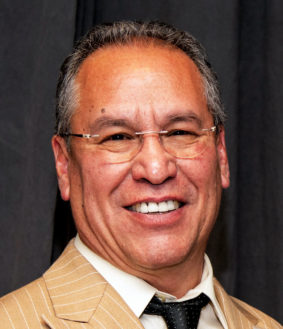 Aurelio Martinez—Martinez was raised in Curtis Park. Studying business at Metropolitan State University empowered him to work as an engineer at IBM and to then open his Martinez Business Center in Denver.
Aurelio Martinez—Martinez was raised in Curtis Park. Studying business at Metropolitan State University empowered him to work as an engineer at IBM and to then open his Martinez Business Center in Denver.
Denver’s been broken for quite some time. With major issues that require major attention, it will take a mayor that will and can make the tough decisions for the betterment of the people that live, work, and operate small businesses in Denver. With me, you are guaranteed to have a mayor that is not part of the status quo.
 Thomas Wolf—Since moving to Denver in 1999, Wolf has worked as an investment banker while devoting time to public service and fighting for progress as a community activist.
Thomas Wolf—Since moving to Denver in 1999, Wolf has worked as an investment banker while devoting time to public service and fighting for progress as a community activist.
Encampments are our root problem and require tough love. Encampments are destroying Denver physically, mentally, and financially. If you have seen, smelled, or heard an encampment, I am sure you can join me in acknowledging this as a humanitarian crisis. Shelter is the answer, provided by your city within its surplus buildings. To not shelter Denver’s neediest is inhumane and inexcusable.
Al Gardner—Gardner is an IT professional and technological consultant. Gardner did not respond to our request for a statement or send a photo.
 Terrance Roberts—In his youth, Roberts was a Park Hill gang member as addressed in the documentary, The Holly. But over the past two decades, Roberts has emerged as a civil rights activist who advocates to prevent crime, protest injustice, improve communities, and reduce inequality.
Terrance Roberts—In his youth, Roberts was a Park Hill gang member as addressed in the documentary, The Holly. But over the past two decades, Roberts has emerged as a civil rights activist who advocates to prevent crime, protest injustice, improve communities, and reduce inequality.
Denver will build and retrofit more public housing. Affordable housing, which is owned by billionaire developers, has been the focus this last decade. Denver needs a democratized public banking system for additional income to pay for more housing. Denver will become a 24-hour world-class city with two-term mayors.
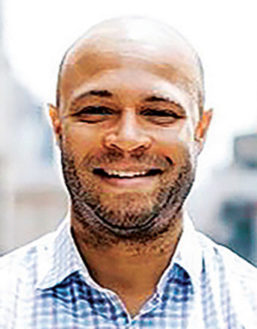 Kwame Spearman—Spearman grew up in Montclair and graduated from East High School. After studying business at Columbia, Yale and Harvard, he became CEO of the Tattered Cover Bookstore and helped it grow into four new locations.
Kwame Spearman—Spearman grew up in Montclair and graduated from East High School. After studying business at Columbia, Yale and Harvard, he became CEO of the Tattered Cover Bookstore and helped it grow into four new locations.
What I appreciate about our city is the vibrancy of our neighborhoods. To keep our city great, we need to give all of our neighborhoods a voice. We have to work to prevent and limit crime in our neighborhoods and no longer allow people to exploit our homeless policies by choosing to live on the street.
Renate Behrens—As an immigrant from Germany, this is Behren’s first time running for office. Behrens did not respond to our request for a statement or send a photo.
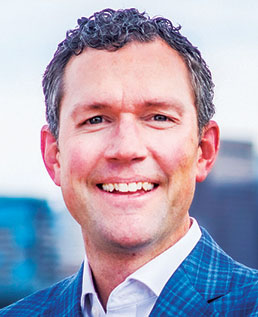 Chris Hansen—Hansen worked as an engineer before being elected to the Colorado House of Representatives in 2017 and then the Colorado Senate in 2020. He represents east-central Denver neighborhoods, and he currently serves on the Appropriations Committee.
Chris Hansen—Hansen worked as an engineer before being elected to the Colorado House of Representatives in 2017 and then the Colorado Senate in 2020. He represents east-central Denver neighborhoods, and he currently serves on the Appropriations Committee.
With my private and public sector experience, I can deliver a safer, more affordable, greener Denver. I’m frustrated because Denver is not working and I plan to build a city that works. I’ve delivered results for Denver for the last seven years at the Colorado Capitol, and I’ve delivered results as a private sector leader.
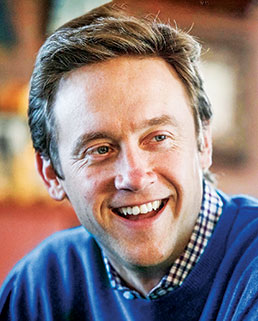 Mike Johnston—Johnston was a school principal at an urban high school, an education advisor for President Obama, and a State Senator for Northeast Denver from 2009-2017.
Mike Johnston—Johnston was a school principal at an urban high school, an education advisor for President Obama, and a State Senator for Northeast Denver from 2009-2017.
I’m proud to be the only candidate who has released comprehensive, fully paid-for plans to end unsheltered homelessness, make housing more affordable, improve public safety, and create equity in all Denver neighborhoods. Denver needs a Mayor who has a big vision for our future, a demonstrated track record of delivering transformational change, and the expertise to lead an 11,000-person organization. I believe I am that candidate.
James Walsh—Walsh is a history professor at the University of Colorado Denver and an activist for social progress. Walsh did not respond to our request for a statement or send a photo.
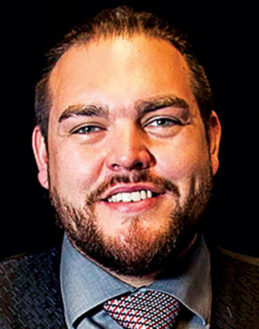 Ean Thomas Tafoya—As a human rights advocate, Tafoya helped pass citywide initiatives and statewide policies to protect the air and improve our water. He is currently a Community Scholar at the DU Interdisciplinary Research Institute of (In)Equality.
Ean Thomas Tafoya—As a human rights advocate, Tafoya helped pass citywide initiatives and statewide policies to protect the air and improve our water. He is currently a Community Scholar at the DU Interdisciplinary Research Institute of (In)Equality.
I’ve dedicated my life to advancing environmental, economic, and racial justice in Denver. I’ve shown up as a community organizer, a teacher, an artist and in three branches of government. We need a Mayor who knows the day-to-day struggle residents go through and has the know-how and willpower to fight for working families on every policy.
Andy Rougeot—Rougeot was an Officer in the United States Army, and he is the only Republican running in the mayoral race. Rougeot did not respond to our request for a statement or send a photo.
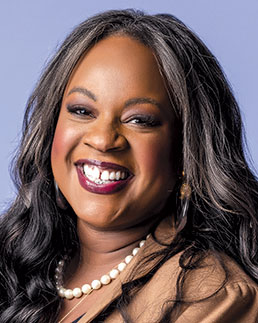 Leslie Herod—In 2016, Herod was the first LGBTQ Black woman elected to the Colorado House of Representatives. Her district covers most of Northeast Denver, she created the STAR mental health responder unit, and she is the chair of the Appropriations Committee and the Joint Budget Committee.
Leslie Herod—In 2016, Herod was the first LGBTQ Black woman elected to the Colorado House of Representatives. Her district covers most of Northeast Denver, she created the STAR mental health responder unit, and she is the chair of the Appropriations Committee and the Joint Budget Committee.
I am running for mayor because Denver is ready for a change for the better. Denver needs a bold leader who puts people over politics and brings those people together to create real, lasting solutions. I have the experience and the record to do just that.
Robert Treta—In 1996, Treta moved to Denver and started his own building company. Treta did not respond to our request for a statement or send a photo.
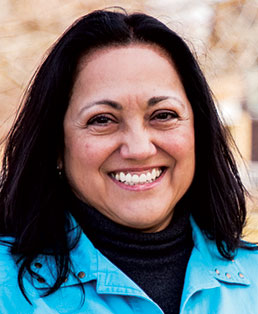 Debbie Ortega—Ortega served on the Denver City Council from 1987-2003. She then worked as Executive Director for the Denver Homeless Commission, served on boards for affordable housing and crime prevention, and was elected again to an at-large city council seat in 2011.
Debbie Ortega—Ortega served on the Denver City Council from 1987-2003. She then worked as Executive Director for the Denver Homeless Commission, served on boards for affordable housing and crime prevention, and was elected again to an at-large city council seat in 2011.
Denver needs to chart a new course: challenges with homelessness, attainable housing, and community safety have set us back. As the only candidate in this race with four decades of public service experience, I am running to create a safe, affordable, and prosperous future for the city we all love.
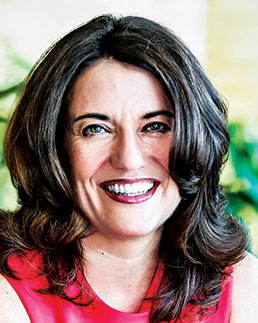 Kelly Brough—As the Chief of Staff for Mayor John Hickenlooper, Brough established Denver’s 311 system and balanced the city budget. As the first woman CEO of the Denver Metro Chamber of Commerce, she focused on creating new jobs and supporting small businesses.
Kelly Brough—As the Chief of Staff for Mayor John Hickenlooper, Brough established Denver’s 311 system and balanced the city budget. As the first woman CEO of the Denver Metro Chamber of Commerce, she focused on creating new jobs and supporting small businesses.
I love Denver and I believe in its promise. Unfortunately, we’re not realizing that promise today. The challenges facing Denver are real and urgent. We can’t afford a leader with a learning curve. I know that my experiences—professional and personal—have prepared me well to be Denver’s next mayor.
City Council Dist. 8 Candidate Statements
Central Park, Northeast Park Hill, East Colfax, and Montbello
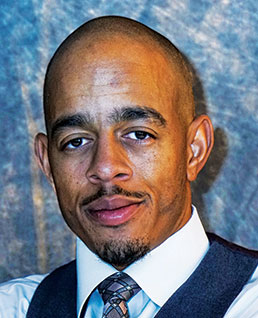 Christian Steward—Steward is a policy advocate, community activist, and published poet. Professionally, he implements projects and delivers services for Northeast Denver while working as a Community Connector for the Department of Transportation and Infrastructure.
Christian Steward—Steward is a policy advocate, community activist, and published poet. Professionally, he implements projects and delivers services for Northeast Denver while working as a Community Connector for the Department of Transportation and Infrastructure.
I plan to create cohesive neighborhood coalitions to identify creative city laws that address housing, rent prices, and our unhoused populations. I would advocate for modernizing city processes by: Streamlining the recruiting and hiring of city employees, bolstering efficiency of city permit applications, decreasing the time for accounts payable, simplifying contracts for local businesses, and increasing wraparound services.
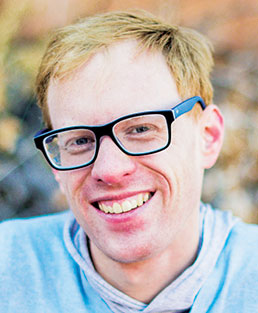 Tyler Drum—Drum has worked for the Children’s Hospital Colorado Foundation, the Jewish Community Center, and the Democratic Party of Denver.
Tyler Drum—Drum has worked for the Children’s Hospital Colorado Foundation, the Jewish Community Center, and the Democratic Party of Denver.
I am running for office because historically Central Park has their needs more intently focused on by the City Council at the expense of the marginalized neighborhoods of District 8. While bike paths and safe streets in Central Park are important, our City Council person must also focus on the food deserts in the district and resist luxury developments that are displacing the people in Montbello, Park Hill, and especially East Colfax.
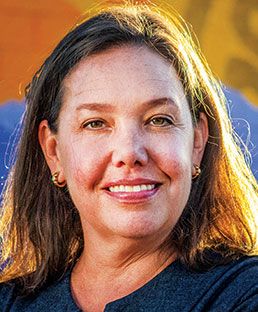 Leslie Twarogowski—Twarogowski fulfilled a career of civic engagement by serving as President of the Parks Board, representative for the Park Hill RNO, and Director of the Federal Boulevard Business Improvement District.
Leslie Twarogowski—Twarogowski fulfilled a career of civic engagement by serving as President of the Parks Board, representative for the Park Hill RNO, and Director of the Federal Boulevard Business Improvement District.
For District 8, I’d like to see safer routes for pedestrians and bicyclists, and I feel it’s necessary to strengthen safety on our buses and light rails. I’d like to find space in our district for alternative forms of housing, including community land trusts and tiny home villages, as well as expand policies that stabilize the residents at risk of displacement.
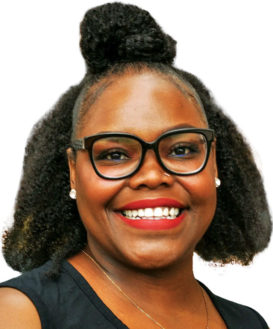 Shontel Lewis—Since being elected to the RTD Board in 2018, Lewis has helped facilitate strategies for the agency while serving on its Civil Rights Committee and as Chair of the Performance Committee.
Shontel Lewis—Since being elected to the RTD Board in 2018, Lewis has helped facilitate strategies for the agency while serving on its Civil Rights Committee and as Chair of the Performance Committee.
I believe the Health of our city is the Wealth of Our City. We should prioritize social determinants of health—affordable housing, healthy food, quality health care, education and job training, community resources, frequent and effective transit, and a flourishing culture. As your next City Councilor, I am committing myself towards making District 8 the healthiest District in Denver.
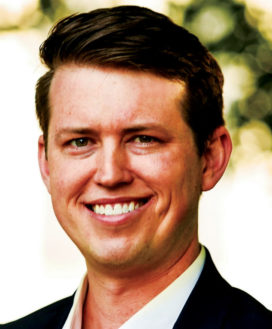 Brad Revare—Volunteering at the statehouse inspired Revare to work in the non-profit sector, write legislation for local communities, and serve on boards for Central Park United Neighbors and the East Colfax Steering Committee.
Brad Revare—Volunteering at the statehouse inspired Revare to work in the non-profit sector, write legislation for local communities, and serve on boards for Central Park United Neighbors and the East Colfax Steering Committee.
When I’m elected, my priority will be to listen, learn, and then lead. You shouldn’t need to be a millionaire to live comfortably in Denver. As I’ve listened to District 8, they tell me they want Denver leaders to deliver on affordable housing, community resources that lower the cost of living, and amenities that allow every family to thrive.
City Council Dist. 5 Candidate Statements
Mayfair, Montclair, and Lowry
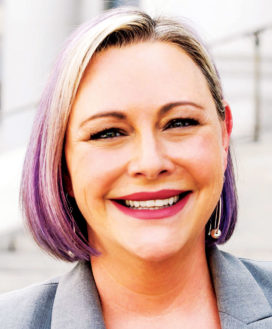 Amanda Sawyer (Incumbent)—Sawyer passed policies to rezone neighborhoods for ADU housing, protect workers from wage theft, mitigate traffic on city roads, and reduce crime by removing guns from the streets.
Amanda Sawyer (Incumbent)—Sawyer passed policies to rezone neighborhoods for ADU housing, protect workers from wage theft, mitigate traffic on city roads, and reduce crime by removing guns from the streets.
I ran for office to amplify the voices of our neighborhoods, and have worked hard over the past four years to advocate for the issues you care about, including crime, traffic, affordability, homelessness, and quality of life. I’ve worked to build bridges and implement solutions to the challenges facing our city, and I look forward to continuing this work in my next term.
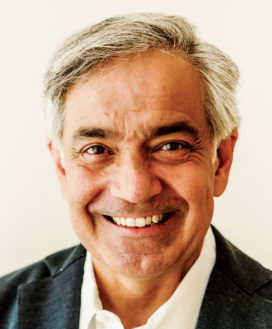 Michael Hughes—Hughes owns a business that offers mediation and strategic planning services. He teaches conflict resolution at DU and heads the West Corridor Transportation Management Association.
Michael Hughes—Hughes owns a business that offers mediation and strategic planning services. He teaches conflict resolution at DU and heads the West Corridor Transportation Management Association.
The last four years have moved us farther from Blueprint Denver’s vision: We are not safe from crime. We are far from the goal of preventing car crashes. We have failed to bring transportation and land use together. Finally, the city is failing at basics of trash services and snow removal. We are better than this. It is time for change and for new leadership.
City Council Dist. 9 Candidate Statements
North and South Park Hill, North Denver, and Five Points
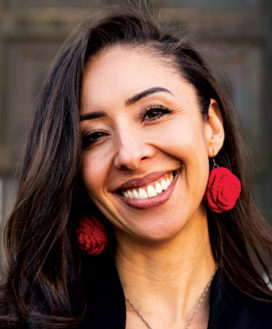 Candi CdeBaca (Incumbent)—CdeBaca worked as a Policy Fellow in Washington D.C., served as a community activist in Northeast Denver, and was elected to the City Council in 2019.
Candi CdeBaca (Incumbent)—CdeBaca worked as a Policy Fellow in Washington D.C., served as a community activist in Northeast Denver, and was elected to the City Council in 2019.
My vision for my role is to re-center the voices of people who are typically silenced or ignored. I believe that housing should be a human right, food should be a utility, utilities should be municipalized, and the economy needs to be re-imagined in a way that halts the exploitation of land, labor, and resources for profit. I value co-governance, transparency, courage, and collective liberation.
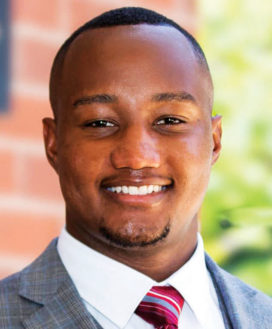 Kwon Atlas—Atlas has worked as an aid for State Sen. James Coleman, U.S. Sen. Michael Bennet, and Denver Mayor Michael Hancock. He also founded the Five Points Atlas, which covers community news in its many neighborhoods.
Kwon Atlas—Atlas has worked as an aid for State Sen. James Coleman, U.S. Sen. Michael Bennet, and Denver Mayor Michael Hancock. He also founded the Five Points Atlas, which covers community news in its many neighborhoods.
I will make Denver a safe, clean, and affordable place to live. Denver’s homeless encampments must be drastically reduced. We must invest in community policing and enforce laws to protect our community. More resources should be made available to youth to prevent violence and promote education. We will make more energy-efficient resources available to our community.
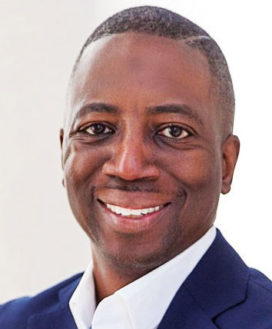 Darrel Watson—Watson’s business promotes social inclusion in public institutions. He developed policies while serving for the Housing Stability Strategic Advisors, the Denver Game Plan for a Healthy City, and the Denver Biased Policing Task Force.
Darrel Watson—Watson’s business promotes social inclusion in public institutions. He developed policies while serving for the Housing Stability Strategic Advisors, the Denver Game Plan for a Healthy City, and the Denver Biased Policing Task Force.
We are at an inflection point in Denver. Housing is too expensive compared to income, it is not located where people want to live, and there isn’t enough of it. I have and will continue to focus on affordability in Denver, ensuring that our teachers, firefighters, and civil service workers can live in the city they love.
City Council At-Large Candidate Statements
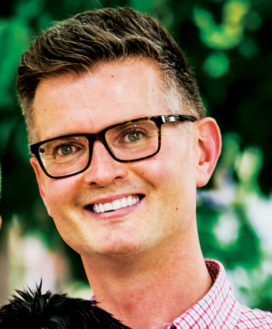 Travis Leiker—Leiker lives in Central Park and spent 20 years in the public sector with leadership roles in organizational management, public policy, and higher education administration.
Travis Leiker—Leiker lives in Central Park and spent 20 years in the public sector with leadership roles in organizational management, public policy, and higher education administration.
Denver needs to get on the right course, and we need leaders who can get processes moving quickly. We can achieve Denver’s housing needs through smart zoning/land use, transit-oriented development, thoughtful urban design, and improved city processes. Homelessness is a regional issue that requires data, best practice, and better management. We can tackle crime through smarter policing strategies, more training, wise staffing, and restoring community relationships.
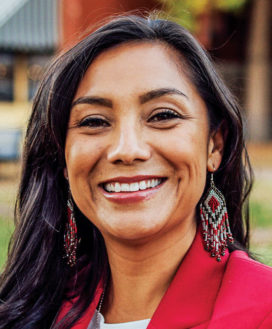 Serena Gonzales-Gutierrez—Gonzales- Gutierrez was raised in North Denver, graduated from CSU, and was elected to the Colorado House of Representatives in 2018. She serves on the Finance Committee, and the Public and Behavioral Health and Human Services Committee.
Serena Gonzales-Gutierrez—Gonzales- Gutierrez was raised in North Denver, graduated from CSU, and was elected to the Colorado House of Representatives in 2018. She serves on the Finance Committee, and the Public and Behavioral Health and Human Services Committee.
For the past 20 years, I’ve worked with children and families in Denver, helping them get access to basic services like housing, food, and treatment. At the State Legislature, I’ve passed over sixty bills to lower the cost of housing, build power for workers, and strengthen protections for renters. Now, I’m focusing closer to home.
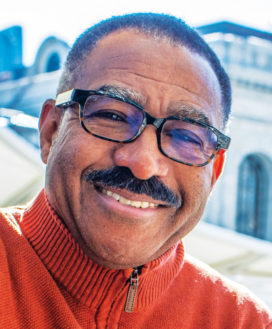 Penfield Tate III— Tate worked in numerous administrations for the Denver Mayor and Colorado Governor Offices. He had a legal career specializing in civil rights and public finance, and he then embarked on a political career by serving in the Colorado House and Senate from 1997-2003.
Penfield Tate III— Tate worked in numerous administrations for the Denver Mayor and Colorado Governor Offices. He had a legal career specializing in civil rights and public finance, and he then embarked on a political career by serving in the Colorado House and Senate from 1997-2003.
I will use my community, executive, legislative and legal experience to solve our housing crisis, protect our open spaces and environment, improve public safety, and expand public transit options for all neighborhoods. I know how to build consensus among diverse interests—residents and policymakers alike—in the City and regionally.
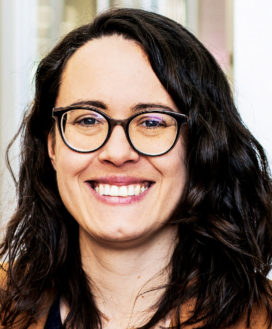 Sarah Parady—Parady began her legal career defending vulnerable tenants, and in 2014 she founded a Denver law firm that specializes in workers’ rights. She has won cases that address discrimination, wage theft, workplace conditions, and equal pay.
Sarah Parady—Parady began her legal career defending vulnerable tenants, and in 2014 she founded a Denver law firm that specializes in workers’ rights. She has won cases that address discrimination, wage theft, workplace conditions, and equal pay.
I’ve been representing working people in the courtroom for a decade. Right now, we need city leaders who are there to fight for our health and safety and wellbeing. My first priority is to tackle housing affordability from every angle so that people stop being displaced from Denver. It’s time we invest in each other.
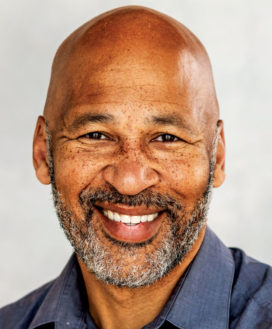 Jeff Walker—Walker has fulfilled a 20-year career in public service by serving on various boards and committees, including the RTD Board of Directors, the Blueprint Denver Task Force, the Denver Planning Board, and the Task Force to Re-Imagine Policing and Public Safety.
Jeff Walker—Walker has fulfilled a 20-year career in public service by serving on various boards and committees, including the RTD Board of Directors, the Blueprint Denver Task Force, the Denver Planning Board, and the Task Force to Re-Imagine Policing and Public Safety.
I’m running for City Council-At-Large because I want to serve the people of Denver with my decades of experience in transportation, land use, and public safety. The energy in Denver is like no other place I’ve lived. I’m excited to put in the work and keep the city moving forward.
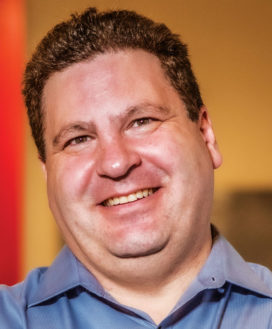 Marty Zimmerman—Zimmerman is the founder of ZIM, the largest nonprofit consulting firm in Colorado. He helps nonprofits conduct research, obtain grants, and implement strategies. He also served as chair for Friends of Manual High School and for the Denver Mayor’s Youth Commission.
Marty Zimmerman—Zimmerman is the founder of ZIM, the largest nonprofit consulting firm in Colorado. He helps nonprofits conduct research, obtain grants, and implement strategies. He also served as chair for Friends of Manual High School and for the Denver Mayor’s Youth Commission.
I am running to use my experience working with 400+ nonprofits, building collaborations, incubating businesses, and impacting all aspects of our community to revitalize Denver. To do this, I will address affordable housing issues, grow our workforce, improve evaluation measures, and ensure that decisions are made with genuine community input.
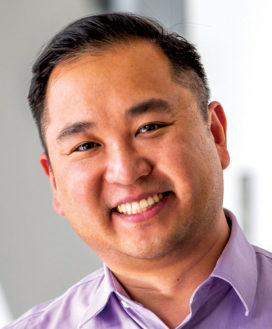 Will Chan—Chan worked at the Denver Public Library while serving as leader of the New Americans Project, which promotes economic mobility for vulnerable residents, low-wage workers, and disenfranchised neighborhoods.
Will Chan—Chan worked at the Denver Public Library while serving as leader of the New Americans Project, which promotes economic mobility for vulnerable residents, low-wage workers, and disenfranchised neighborhoods.
Denver has experienced rapid growth over the past few years and we have significant work ahead to prepare Denver for the future and protect families who are struggling to make ends meet. We need creative problem-solving to invest in housing availability, a next-generation workforce, critical physical infrastructure, and a revitalized system of social services that reduces poverty and improves the path to self-sufficiency.
Dominic Diaz—The 25-year-old Diaz graduated from East High and then joined the Denver Clerk and Recorder’s Office to oversee election operations, financial disclosures, and lobbyist activities. Diaz did not respond to our request for a statement or send a photo.
Tim Hoffman—While serving in the Denver District Attorney’s Office, Hoffman has prosecuted hundreds of cases to protect vulnerable populations or convict violent offenders. Hoffman did not respond to our request for a statement or send a photo.
Referred Question 2O: The Park Hill Golf Course
Ballot Question 2O will let Denver voters decide whether the Park Hill Golf Course that closed in 2018 should be preserved as a public park or developed by Westside Investment Partners. Although a city conservation easement prohibits the land from being developed, Westside would like the city to lift the easement so the company can implement its project.
According to Westside’s plans, the east portion of the golf course would be converted into a 95-acre regional park that would only be accessible for pedestrians and bikers. The west section along Colorado Blvd would provide a residential neighborhood with 3,000 units, and more than 25 percent of those homes and apartments would be affordable to rent or own. On 38th Avenue going east from Colorado Blvd., a pedestrian market called “Main Street” would stretch horizontally to provide a row of stores, bars, and restaurants. Main Street would also merge into the park so residents can combine the activities of eating at the restaurants, shopping at the stores, and playing in the park. Additionally, Westside is designating an open plot of land on 35th Avenue for a grocery store, but there are no official plans or guarantees that a grocery store will be constructed on the plot. Denver voters can expect to see campaigns for this ballot measure and to hear arguments from both sides. For Question 2O, a “Yes” vote would cause the city to lift the conservation easement and allow Westside to initiate this development project. Supporters say that the project would supply the community with a park but also provide features they say Northeast Park Hill needs, such as food options for residents, affordable homes for families, and retail centers for businesses. However, a “No” vote would require the city to keep the easement in place and prevent Westside from implementing this project. Opponents contend that preserving the land as a large park would benefit Northeast Park Hill by adorning the aesthetic beauty of the neighborhood, enhancing the mental and physical health of the residents, improving the air quality of the community, and offering recreational activities for the families.


0 Comments